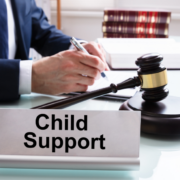Divorcing later in life, sometimes referred to as gray divorce, presents a few unique challenges. The longer you have shared a life with someone, the more interwoven your finances, assets, and livelihoods have likely become. Untangling these matters may benefit from the support of an experienced legal professional.
Understanding the complications that sometimes arise with this process could help you feel more confident navigating them.
Essential Considerations When Divorcing Later in Life
Perhaps you and your spouse are nearing retirement age, or your adult children have recently moved out of the house. Many circumstances might prompt a couple to divorce later in life. When going through divorce proceedings, consider how you and your spouse will navigate each of the following potential issues.
- Supporting two households: You and your spouse are used to sharing expenses. Now, the income you previously shared to support one household will need to stretch farther to support two entirely separate households.
- Retirement: You and your spouse will need to divide retirement assets that you might have previously planned to share. This reduces the funds you each have available and may delay your retirement.
- Alimony: Alimony is somewhat common for couples divorcing later in life. If one spouse earns significantly more than the other, consider how alimony might be a factor in your divorce.
- Estate planning adjustments: You and your spouse might each need to adjust your estate plans to reflect your new marital status. You may need to remove each other as beneficiaries, update power of attorney documents, and adjust your life insurance policies.
- Adult children: If you and your spouse were planning to pay for major expenses such as college or weddings for adult children, talk about how you will approach these costs when separated.
Consider Alternative Dispute Resolution for “Late Life” Divorce
Some couples who divorce later in life benefit from alternative dispute resolution methods as opposed to going to court and allowing a judge to make major decisions for them. For example, divorce mediation encourages you and your spouse to discuss and reach a mutual agreement on issues such as the division of assets and alimony.
Alternative dispute resolution methods are sometimes less stressful and emotionally taxing than going to court. They could allow you and your spouse to maintain a cooperative dynamic after the divorce and avoid the tensions that sometimes arise when going through a court battle.
How an Attorney Can Assist This Process
An experienced legal professional can help you navigate the many complexities of divorcing later in life. A divorce attorney will help you consider all potential complications in the divorce and explore alternative dispute resolution processes with you. They can review your divorce settlement agreement and identify any potential issues that may lead to future financial problems.
Consult Karen Ann Ulmer, P.C.
If you are divorcing later in life or considering a legal separation, Karen Ann Ulmer, P.C., can assist with evaluating your legal options during this process. Contact us today at (866) 311-4783 to schedule a confidential consultation.












